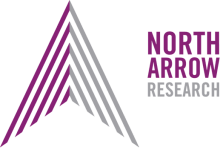The GCD is open-source freeware and there are a variety of ways that you can get help and training on its use. The first thing to identify is what type of help you need. We have tried to make sure that there is a free, self-supported way to get trained up and get done most everything you might need to do in the software. However, if you want some help getting up to speed quickly, you might want to take a workshop, or get support from the GCD community, or hire a professional to help you if your problems are more complicated.
Free Support
The GCD is documented extensively. See the links below for help on understanding GCD concepts, tutorials and on how to use specific GCD features.
Workshops & Courses
We have taught five bespoke GCD workshops for specific groups and over 10 public GCD workshops in the United States, Italy, Australia, Spain, New Zealand and Japan. Joe Wheaton also teaches a semester long class on Geomorphic Change Detection (WATS 6850) at Utah State University for graduate students.
Discussion Forum & Issue Board
We use GitHub Discussions as a forum for asking questions and getting help as well as reporting bugs. You can search the forum for past issues without a login, but to post to the forum you will need to create a free GitHub account.
If discussion issues raised turn out to be bugs or turn into feature requests, we post them in our Github Issue Board.
Example Datasets
There are lots of ways to get your hands on repeat topographic datasets even if you don’t have your own. Through our tutorials we provide a number of repeat topographic survey datasets from around the world for you to play with.
Paid Support
While the software is free and reasonably well documented, it is not perfect, and you get what you pay for. That is, if you have sponsored the development of specific features or hired us to carry out specific research, we make sure you get exactly what you need. If you’ve downloaded the free software and are using it to do something, and you find a bug and report it, we try to fix it to the extent we can and we have funding support to do so. The dirty secret about open-source software is that very few users take the time to contribute back to the cause by contributing their improvements to the code (though we like the idea), and someone paid for this. If you’re interested in seeing new features added to GCD or having our development team build custom features or apps to meet your needs, please get in touch.
None of the GCD development or support happens without someone paying for it (contrary to popular belief, we get no support from our university employers for supporting this effort and capable students don’t work for free). When we are lucky enough to have secured research grant funding (from NSF or NERC for example), they provide temporary financial support for us to provide technical support to users at no additional cost. However, everything else is on our personal time and personal dime. We try to help out users where we can, but our development and support team is in high demand. If you want to ensure you get the help you need when you need it, you can hire an USU ET-AL analyst to help you with your GCD analysis, designing monitoring campaigns or helping you with your research. There are also a growing list of consulting firms that have taken the training to become very proficient at also providing such services.

